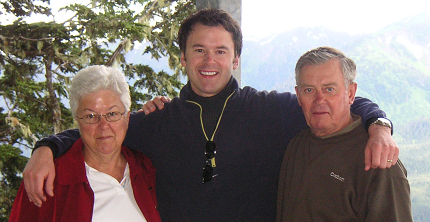Workplace Freedom Yields Engaged Employees
 Freedom is a big deal in America. People fight, and even die, for the right to be free.
Freedom is a big deal in America. People fight, and even die, for the right to be free.
But what about at work?
Isn’t work the antithesis of freedom? We’re supposed to show up and do what we’re told. If that sounds like an antiquated idea, you might be surprised to learn that it’s still the modus operandi in a majority of U.S. companies according to Harvard Business School professor Ranjay Gulati in a recent HBR article, “Structure That’s Not Stifling” (May/June 2018).
Gulati’s thesis: “Most leaders view employee freedom and operational control as antagonists in a tug-of-war that can have only one winner. So they tend to pour their resources into regulating workers’ behavior – often unknowingly putting a damper on commitment, innovation and performance. . . By giving people a clear sense of the organization’s purpose, priorities and principles—that is, a galvanizing framework—leaders can equip them to make autonomous decisions that are in the company’s best interests. Employees should be involved in identifying and articulating those guidelines.”
Rarely do I hit upon a single article that so neatly lines up with my own perspective, but if you’ve read my book “The 100: Building Blocks of Business Leadership” you know how much I value employee freedom. We also have evolved systems – annual employee town hall meetings, open door policies, and regular communication that reinforces our values — to ensure that freedom is governed by a flexible framework in which our people have a large say.
From giving our people freedom to decide when, where and how they get their work done, to ensuring all team members have access to resources to keep growing their skills and moving their careers in the direction they choose, Intertech is all about employee empowerment. As a leader, this empowerment results in freedom.
But freedom at work also means freedom to think. Professor Gulati defines freedom at work as “trusting employees to think and act independently on behalf of the organization. It may also include allowing them to find fulfillment and express themselves.”
As social media empowers people to express themselves, an expectation for more autonomy at work naturally results. And as a business owner, I would argue that’s a good thing! Employees who know it’s OK – and even encouraged – to make decisions on their own tend to be more engaged, energized and productive. Sadly, I appear to be in the minority according to Gulati’s research.
He references earlier Harvard researchers that advised, “Companies need to shift to a model built on engaging corporate purpose, effective management processes that encourage individual initiative, and a people policy focused on developing employees’ capabilities rather than on monitoring their behavior.” (“Changing the Role of Top Management: Beyond Systems to People,” HBR, May-June 1995). Gulati shares that 23 years since that original article was published in HBR, a majority of U.S. companies still embrace the old control and command model
Maybe my ability to give more control to employees stems from how I was raised.
Growing up on a farm, my folks believed we should be encouraged to make decisions and to act upon them, even if that meant sometimes making a mistake.
I’ll never forget the day I sheared the axel on our family truck because I was revving the truck while parking brake was engaged. Rather than giving me the devil, my dad just smiled and said, “If you never do anything, you’ll never make a mistake.”
In that moment I learned to stop fearing mistakes and to trust myself to make decisions and to act. I urge you to give your employees a flexible structure that emphasizes what matters in the big picture, then stepping out of their way and letting them reach organizational goals in the ways that make most sense to them.
It’s the only way they – and your organization – will ever get anything done!



 There’s been a lot of talk in Minnesota and the country about “inappropriate behavior” by high-profile men that many of us previously admired for their leadership, creativity and contributions to our culture or government. But when the “icky” news began to break, we suddenly thought about those men differently. Their legacies will not make their children proud.
There’s been a lot of talk in Minnesota and the country about “inappropriate behavior” by high-profile men that many of us previously admired for their leadership, creativity and contributions to our culture or government. But when the “icky” news began to break, we suddenly thought about those men differently. Their legacies will not make their children proud.